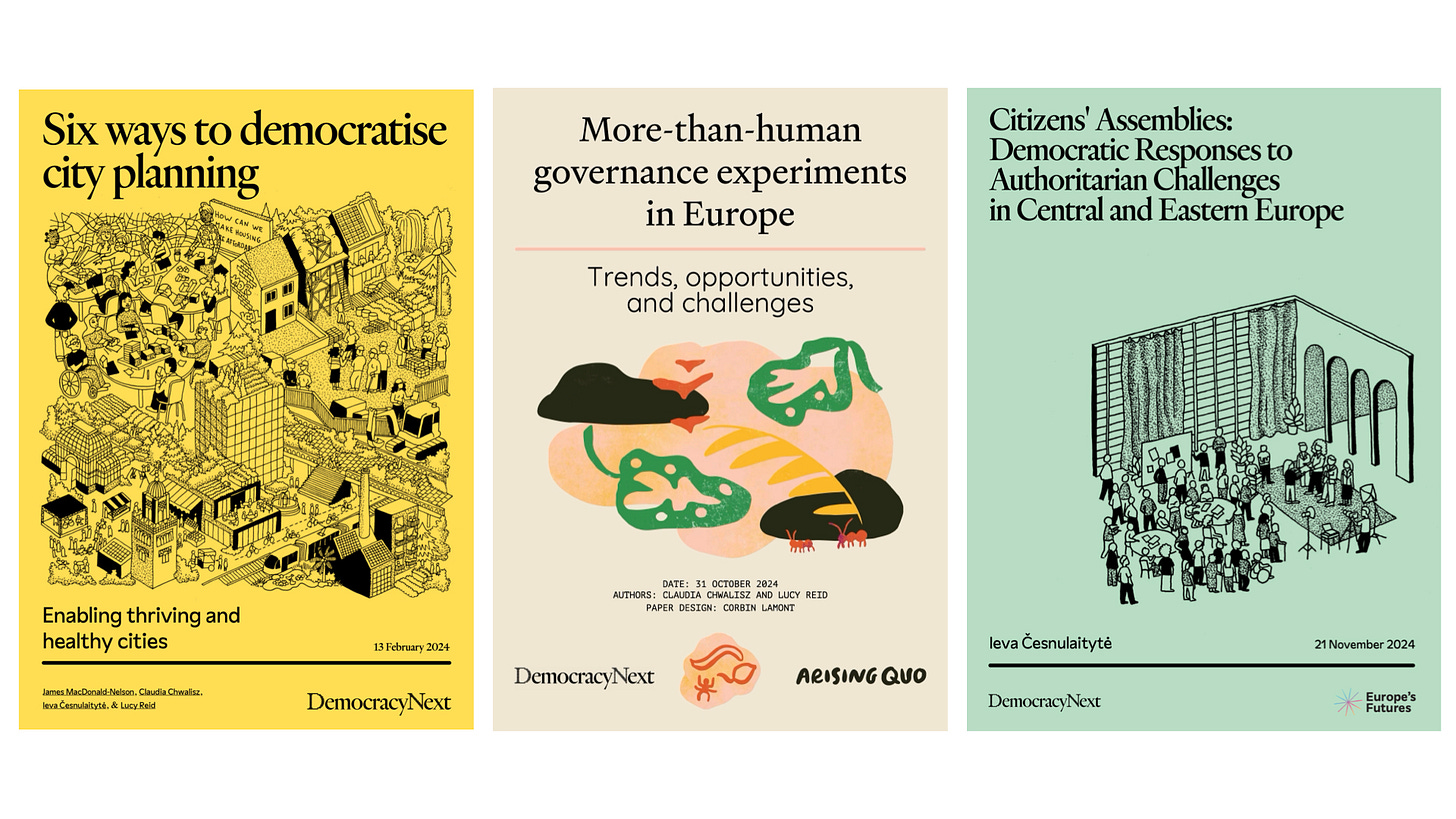🚀 A short journey round DemNext's second year
A clear new focus on citizens' assemblies … and more
Greetings from DemocracyNext!
How did democracy fare in 2024? In terms of elections, the year was heralded as one of the biggest ever, a supercycle that has seen 1.6 billion people vote in 71 of 74 scheduled polls held so far. But even fans of elections have been dismayed by the results, which saw a record number of incumbents punished at the polls.
For us at DemocracyNext – where 2024 marked both our second birthday and our full incorporation as a non-profit foundation – these results only strengthened our conviction that the problem is the system itself, not so much the politicians who come and go. After all, Freedom House has seen a trend toward more authoritarian government for the past 17 years.

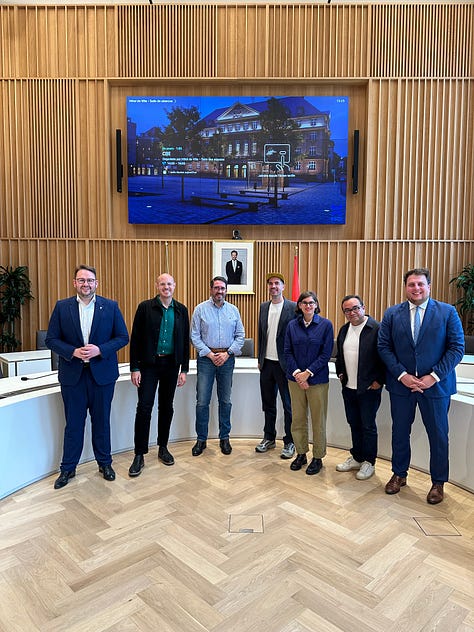
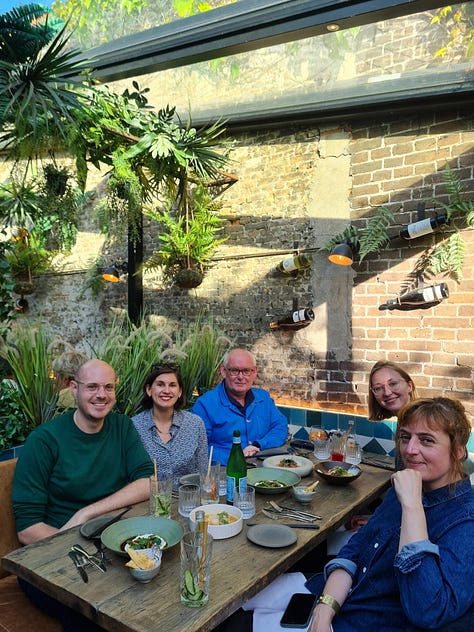
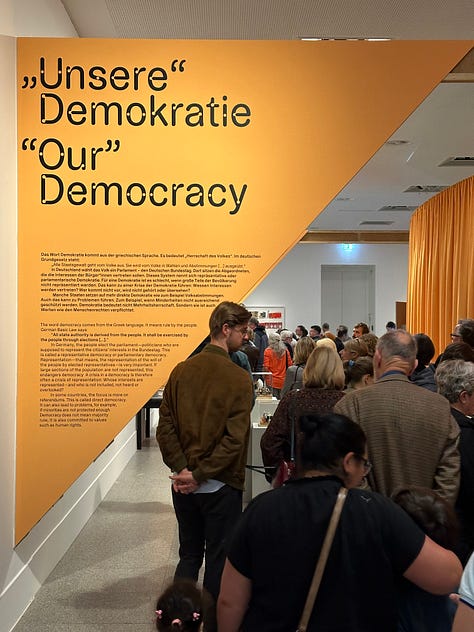
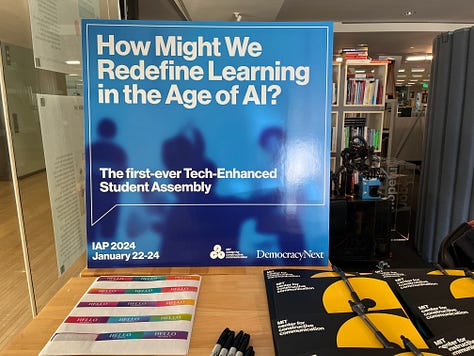

All this makes us double down on the opportunities that we see. We have clarified our vision and detailed mission statements to show how countries can benefit from broader-based, deliberative ways of taking long-term decisions to navigate their way out of political, fiscal, and economic crises. At its heart, our message is: let the citizens participate and have a real say, ideally through a more deliberative democracy.
We have sharpened our focus on the development of citizens' assemblies, also known as citizens' juries, mini-publics, or people's assemblies. These are groups of randomly selected citizens chosen to be broadly representative of a community, city, or country, who gather for a number of days to have briefings from experts, deliberate with the support of skilled facilitators, and propose solutions to tough problems.
In 2024, we were proud to publish translations in Spanish, Basque, and most recently Japanese, of the global best practices in our Assembling an Assembly Guide, thanks to our collaborators at La Red Delib, Arantzazulab, and the Japan Deliberative Mini-Publics Research Forum. As we'll detail below, we pushed forward with assemblies for cities and pioneering new technologies to make them work even better.
But how to advance our democratic cause in these dismaying times? We put the question to the year-end gathering of our International Advisory Council, now a 19-member team of thought leaders in a wide range of fields chaired by Robbie Stamp, strengthened this year by global pioneers like Dutch cybersecurity expert Marietje Schaake, British finance and civil society leader Deborah Botwood Smith, and tech pioneers Audrey Tang of Taiwan and Deb Roy of the MIT Center for Constructive Communication.
Here are our initial shared thoughts for how we might collectively proceed - call them our New Year's resolutions, if you will....
Keep resisting the trend toward authoritarianism and illiberalism in elected governments.
Focus on building and improving practical examples of our ideal alternative direction, namely deliberative democracy and citizens' assemblies.
Find ways to underline that the problem is not in specific electoral victories; the cause is an out-of-date, election-based, political party system that delivers less and less credible, legitimate government.
Refine our storytelling that shows how successful – and joyful – citizen-based alternatives to elections can be.
So while Trump's 2024 win seems 'clear' in terms of the current system, it's also clear that a victory based on only half of the vote, and well under half of the population, is hardly a ringing endorsement for the current system.
And another: like the UK's commentariat, we loved the depth and authenticity of the 29 November 2024 free vote debate in the House of Commons on assisted dying. But we need to caution that this cannot be seen as a seal of approval for elected parliaments. The debate was only possible because political parties freed their representatives to speak and vote according to their consciences, a vanishingly rare occasion that parliament offers to only one to three parliamentary bills per year. It is far from clear whether the preliminary vote in favour of assisted dying will result in real action. Moreover, our experience of numerous citizens' assemblies on assisted dying shows they have a much deeper capacity to form a fully rounded new policy on the question – we need deliberation, not debate.
Talking of citizens' assemblies – which we love to do from any podium – we're always looking for new ideas to improve them. We learned a lot from helping catalyse the convening this year of the Deschutes Civic Assembly on Youth Homelessness in the US county of Deschutes, Oregon, alongside Central Oregon Civic Action Project, Healthy Democracy, OSU Cascades and MIT Center for Constructive Communication. This showed a citizens' assembly at its best: winning heartfelt support from assembly members; benefitting from real buy-in from local government; overcoming deep local political polarisation; and producing 23 proposals shown to have full community consensus for further action. It also helped us on two other fronts.
Firstly, the Deschutes assembly reinforced our conviction that cities are some of the most promising early adopters of citizens' assemblies. We spelled out our vision in this year's paper Six Ways to Democratise City Planning, helped by a group of globally renowned professionals. Our February 2024 call for cities to work with us to implement these ideas received over 20 applications from cities in 17 countries around the world. After rigorous interviews, we selected three cities with whom we are now half-way through an 18-month programme: Esch-sur-Alzette, Luxembourg; Kerewan, The Gambia; Vilnius, Lithuania.
Secondly, the Deschutes assembly allowed us to test how pioneering tech and AI can help with the briefings, facilitation, and deliberation that are so central to the success of assemblies. We joined up last year with MIT's Center for Constructive Communication for a two-year pop-up lab to find new ways to put tech at the service of deliberative assemblies. Real life, of course, turned out to be rather different from our brainstorming in the lab and we all came back from Deschutes with a ton of data and new insights. We’ll be announcing a new collaboration that will build on this work in the New Year – but one thing we’re clear on is that round after round of ideas, innovation, and testing are how all progress is made.
Finally, we are pushing forward with supporting pioneering citizens' assemblies in cultural institutions. The museums of Dresden and Bonn held groundbreaking four-day assemblies in 2023 in collaboration with Design & Democracy, nexus and DemNext. In Bonn this year, the museum hosted an exhibition from the national Bundeskunsthalle on updating democracy; it moves to Dresden next year. And we’ve been acting as a critical friend and advisor to Birmingham Museums Trust as they held the first citizens’ jury in a UK museum, facilitated by Shared Future. The citizens responded to the question “What does Birmingham need from its museums, now and in the future; and what should Birmingham Museums Trust do to make these things happen?" – we’re looking forward to the launch of the citizens’ recommendations in January.
We can't leave you without talking about our other source of inspiration during the year: concern for the natural world of which we are a part. After publishing a paper on Governing with the more-than-human world, we co-convened and reported on a one-day workshop alongside Arising Quo, together with allies and experts, to start working out what the best ways forward might be in the future.
As we reflect on all the experiences and ideas we've had from our second full year of activity in 2024 – reinforced by a small but mighty team of full- and part-time staff – we hope you'll feel the same hope and sense of renewed purpose that we do. If so, please do subscribe to this newsletter, share it with friends, and consider supporting us financially in 2025. Every contribution helps us on our journey to an ever-fuller democratic life.
📡 What’s on our radar
📚For our year-end round-up – and in case you need ideas for uplifting gifts! – we thought we'd leave you with what we thought were some noteworthy 2024 books that contribute to general readers' appreciation of deliberative democracy:
⚖️ Adventures in Democracy: the Turbulent World of People Power by the political philosopher Erica Benner. An appealing, non-ideological tour of what's undermining good government, and some collaborative ideas to deal with monopolists and others who would dominate us.
💪 The Tech Coup: How to Save Democracy from Silicon Valley by cybersecurity expert and our own International Advisory Council member Marietje Schaake. As she told us, citizens' assemblies may not be our first line of defense, but everyone must mobilise behind more regulation of tech if our governments are to retain their ability to govern.
🌦️ We Need to Talk about Climate: How Citizens' Assemblies Can Help Us Solve the Climate Crisis. The University of Westminster's Graham Smith gives a highly readable, urgent account of climate assemblies at local, national, and international levels and their potential for helping guide the planet to safety.
😈 Deliberative Democracy for Diabolical Times: Confronting Populism, Extremism, Senial and Authoritarianism a more serious but still accessible introduction to the field by academics André Bächtiger and John S. Dryzek.
🎄❄️✨ Wishing all of you restful and joyful holidays. See you back in action in the New Year!






